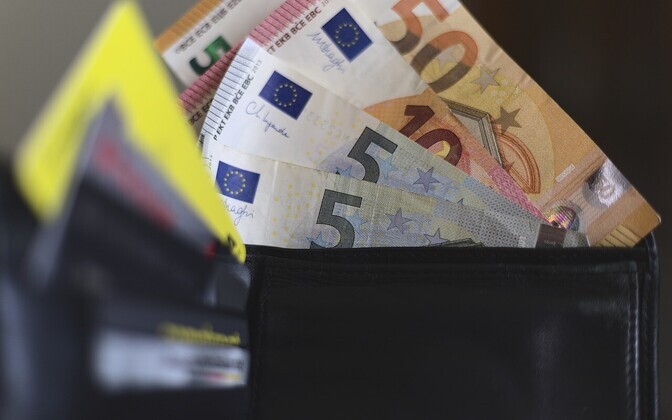Top-rate tax on small businesses entrepreneurship accounts may be scrapped | News

A bill which would eliminate a higher tax rate on sums paid into entrepreneurship accounts (Ettevõtluskonto) will if it passes enter into effect next year.
The law change relates to a sui generis type of account operated currently only by LHV Pank and which applies tax on deposits with the bank which derive from business revenues up to €25,000, then moves into a higher bracked (40 percent) for sums above that and up to €40,000 per year.
This higher rate would be scrapped under the bill, though the number of people paying tax at that rate remains comparatively small at not much more than a hundred.
As the amendments apply to small business, new rates will also apply to account holders who have signed up to the so-called second pillar of the Estonian pension system, and also addresses social security payments on the part of such businesses.
Kairi Ani, tax policy advisor at the Ministry of Finance, said: “The benchmark of €25,000 has been numerically enshrined in legislation and has remained unchanged since that law was passed in 2017.”
The situation has changed since then, however, she noted.
“We all know that costs have risen since then, as have incomes: The average wage, for example, has risen by 58 percent.”
“As a result, we deemed it necessary to review that threshold. If we were to adjust it proportionally to wage growth, the higher rate would apply to a very small portion of overall income, which led us to conclude that the current higher rate should be scrapped altogether. A current tax rate of 20 percent would then apply to all revenues transferred to entrepreneurship accounts, regardless of the volume of revenue,” Ani added.
Additionally, once the changes are implemented, the tax rate for entrepreneurship account users who have joined the second pillar of the Estonian pension system would be higher in line with the rate of their pension contribution, at 22, 24, or 26 percent.
The Tax and Customs Board (MTA) says an entrepreneurship account is beneficial for those individuals who provide services to other private individuals but which do not directly involve costs, or who sell home-made goods, for instance, or experience low material or acquisition costs.
Its simplified method makes it also amenable for “new” forms of business, including those using ride-sharing apps to generate income, the MTA argues.
The number of entrepreneurship account holders has been growing yearly, while as of early April this year, account holders total 23,848 such account holders.
So far, these are all operated by Estonian bank LHV.
Last year, transactions made via these entrepreneurship accounts amounted to more than €3 million per month, with the state taking in over €7.7 million in taxes that year.
If the bill under preparation the Ministry of Finance passes into law, the higher 40-percent tax rate on income earned via an entrepreneurship account will be removed, while new tax rates will apply to users of entrepreneurship accounts which have signed up to the second (of three) pillars of the pension system, referring to employer/employee contributions.
The bill will also make changes to the tax obligation of any company which purchases services from an entrepreneurship account owner.
The Ministry of Culture has also proposed replacing the existing additional income tax with a social security tax, whereby a company would have to pay social security tax on half of a service fee amount.
Ani said that this would result in a company’s additional tax obligation “somewhat decreasing.”
“There has also been an issue with entrepreneurship accounts in that the user may have incomplete health insurance or social guarantees set up. This change will thus help to boost the social security of entrepreneurship account users,” she went on.
Under the current system, entrepreneurial income is taxed at 20 percent when up to €25,000 is paid into an account annually.
Above that figure, but no higher than €40,000 (which is in fact the limit for the entrepreneurship account category) is taxed at 40 percent.
Last year, there were 136 individuals in Estonia whose income was taxed at 40 percent.
—
Follow ERR News on Facebook and Twitter and never miss an update!



